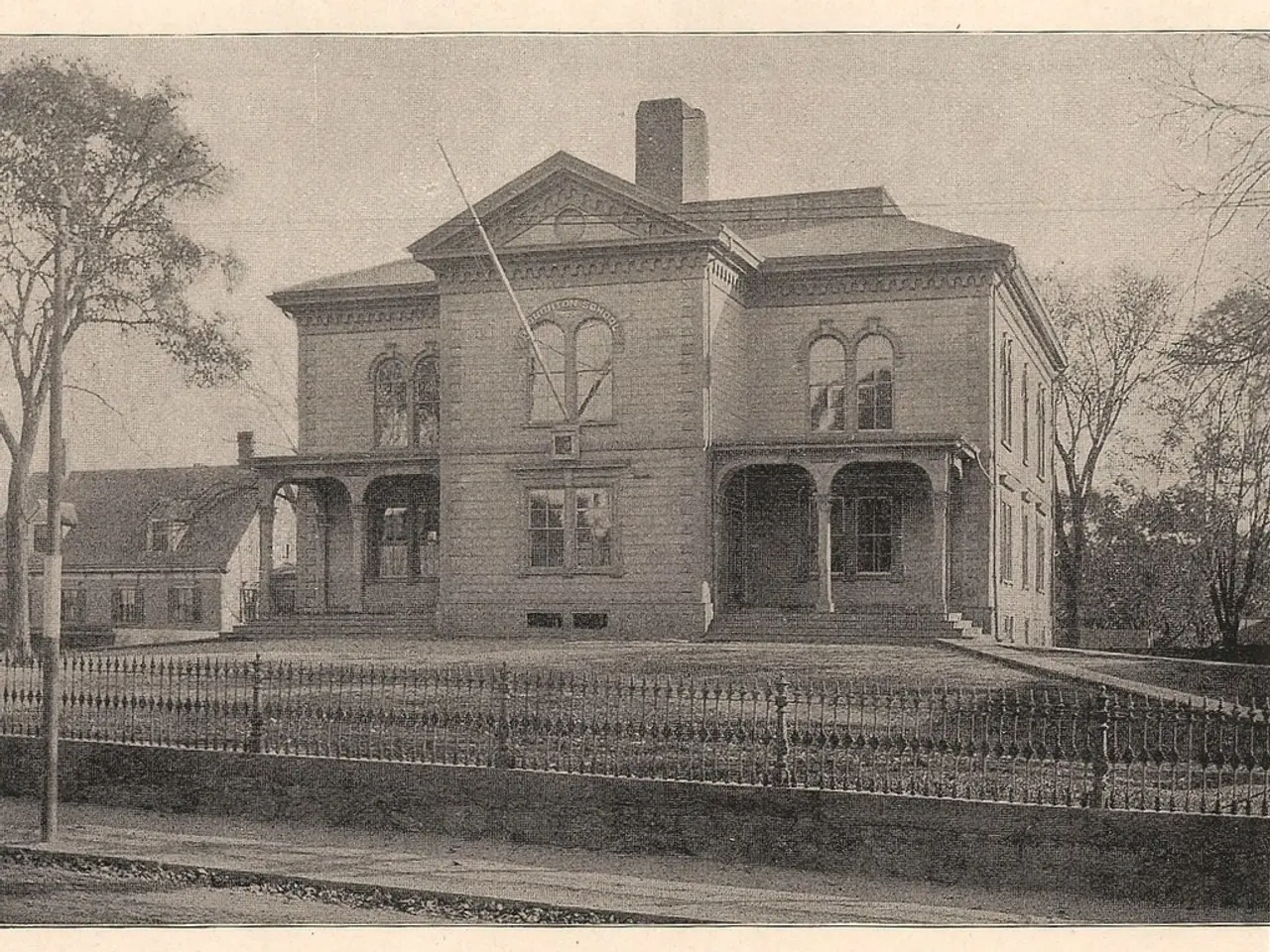Various Fence Styles and Selecting the Optimal Barrier for Your Residential Property
When it comes to upgrading your home, choosing the right fence can significantly impact your property's security, privacy, and overall aesthetic. Here, we delve into the advantages and disadvantages of four common fence materials—aluminum, cedar wood, vinyl, and chain link—to help you make an informed decision.
Material Comparison
| Material | Privacy & Security | Aesthetic Appeal | Maintenance | Longevity | Cost (per linear foot approx.) | Climate Suitability | |----------------|-------------------------------------------------|-------------------------------------|-----------------------------------|-----------------------------|---------------------------------------|------------------------------------------------| | Aluminum | Low to medium privacy; good security due to durability; easily customized with decorative slats for more privacy | Stylish, classic look with various styles and colors | Very low maintenance; resistant to rust and corrosion | 20–30+ years | $25–50 | Excellent for harsh climates including snow and hurricanes; holds up well under extreme weather[1][5] | | Cedar Wood | High privacy if solid panels; natural barrier; good security with sturdy construction | Natural, warm beauty with rich texture; fits rustic or traditional homes | Moderate maintenance; requires regular staining or sealing to prevent rot and insect damage | 10–15 years | $20–40 | Best in moderate climates; vulnerable to rot and insect damage in wet/humid conditions[1][3]| | Vinyl (PVC)| High privacy with solid panel options; safe (no splinters or sharp edges) | Clean, polished, and uniform appearance; available in many colors and styles | Low maintenance; just cleaning required; no rotting or insect damage | 20–30 years | $25–45 | Works best in moderate climates; may crack or become brittle in extreme cold[1][3][5] | | Chain Link | Low privacy unless slats added; security depends on height and gauge thickness | Minimal aesthetic appeal; utilitarian look | Low maintenance; galvanized or coated options resist rust | 15–20 years | $10–20 | Suitable for various climates but less durable aesthetically; mainly for security and budget use[1] |
Key Considerations
- Privacy: Cedar and vinyl offer the highest privacy, especially with solid panels. Aluminum and chain link typically provide less privacy unless modified by inserts or slats.
- Security: Aluminum and chain link fences are durable and harder to breach. Cedar provides a natural barrier but may be vulnerable if wood weakens. Vinyl is safe and durable but can crack under heavy force.
- Aesthetic Appeal: Cedar wood is ideal for a natural, traditional look. Vinyl suits modern aesthetics with uniform finishes, while aluminum offers versatility between classic and decorative styles. Chain link is least attractive.
- Maintenance: Aluminum and vinyl require the least upkeep. Cedar demands periodic staining or sealing and pest management. Chain link is practically maintenance-free but can rust unless coated.
- Longevity: Aluminum and vinyl last 20–30 years or more; cedar needs replacement or significant repairs after 10–15 years; chain link has a mid-range lifespan.
- Cost: Chain link is the most affordable option followed by cedar, vinyl, and aluminum, which tends to be pricier upfront but offers longer life and low maintenance.
- Climate: Aluminum withstands harsh weather best (snow, wind, salt, hurricanes). Cedar is vulnerable in wet or humid areas. Vinyl performs well in moderate climates but risks cracking in extreme cold temperatures[1][3][5].
Summary for Decision-Making
- Choose aluminum if durability, low maintenance, and weather resistance are top priorities, with moderate privacy needs.
- Choose cedar wood for natural aesthetics and high privacy but be ready for moderate upkeep and potential shorter lifespan.
- Choose vinyl for strong privacy, low maintenance, and a clean modern look, preferably in mild climates.
- Choose chain link for budget-friendly security needs, accepting less privacy and aesthetics.
By considering these factors, you can make a tailored fencing choice based on your priorities and local climate conditions. Keep in mind that other materials such as bamboo, chain link, and composite fencing also have their unique set of benefits and drawbacks.
Climate plays a vital role in the lifespan and maintenance of your fence. Consider the weather patterns in your area when choosing the right type of fence for your home. Prioritize your needs and consider factors such as style, material, maintenance, longevity, cost, and climate before making a decision.
Vinyl or metal fences are more durable and can withstand extreme temperatures and moisture. Maintenance and longevity are crucial factors when deciding on the type of fence to install. Wood fences require regular painting or staining, while vinyl, aluminum, and metal fences are relatively low-maintenance and can last for decades.
Choosing the right type of fence involves considering various factors, including traditional versus modern styles and material options. Traditional fencing styles, such as wood or wrought iron, offer timeless charm and can blend with various architectural styles, while modern styles like vinyl or aluminum provide a sleek, contemporary look.
Take into account any local regulations or homeowners association rules that may impact your choice of fence. Research each material's durability and decide which option best suits your budget and long-term maintenance capabilities. Seek advice from professionals or consult with neighbors who may have similar fences.
[1] Source 1 [2] Source 2 [3] Source 3 [4] Source 4 [5] Source 5
- For those interested in a home improvement project focused on enhancing their home-and-garden space, selecting a suitable fence material can improve privacy, security, and aesthetic appeal.
- When comparing ideal fencing materials for a lifestyle balancing privacy, durability, and attractiveness, materials such as aluminum, cedar wood, vinyl, and chain link each exhibit unique advantages and drawbacks, making informed decisions much easier while considering factors like maintenance, longevity, cost, and climate suitability.




